What Are The Reasons For Weight Gain After Surgery? Ways To Lose Weight
From stress to food habits - learn what’s causing that post-surgery weight gain.
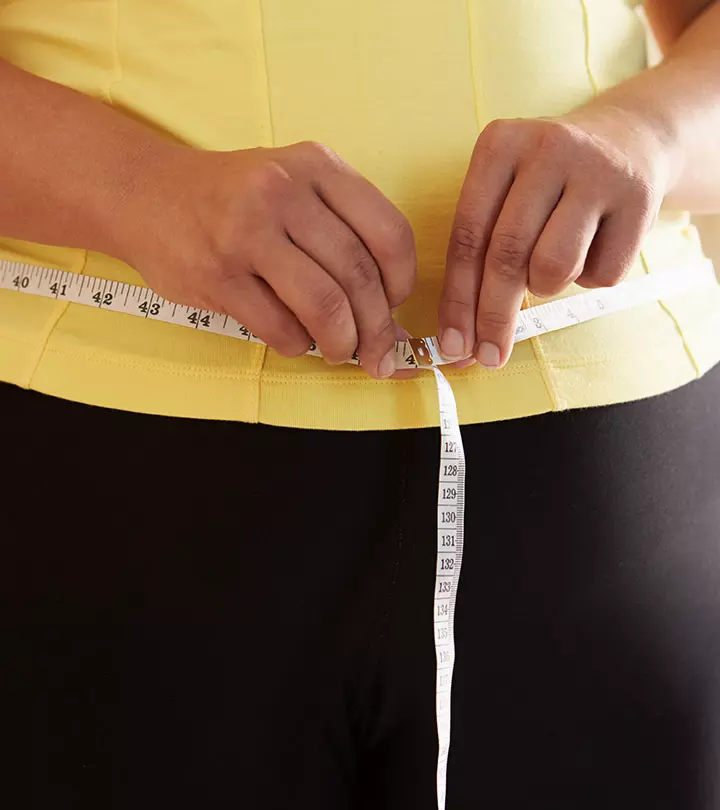
Image: Shutterstock
If you are gaining weight rapidly, one of the major reasons for it could be your recent surgery. It is important to understand what are the reasons for weight gain after surgery to manage your expectations and plans for recovery. Temporary weight gain is normal, but having a deeper insight can help you take charge of your health during this time. Weight gain after surgery happens due to the fluid retention that occurs in the follow-up period. Weight gain after a surgical operation can be handled by following a few measures. Mary Sabat, RDN, LD, CPT, says, “It is not unusual to gain weight after surgery, as the body needs time and energy to recover from the surgery.”
Weight gain is commonly observed post-pregnancy, especially after undergoing a C-section. To put things in perspective, here is a staggering stat for you. The Pregnancy Risk Assessment Monitoring System (PRAMS) suggests that weight gain post-pregnancy has sharply risen by 70% over the last few years (1).
Even a small procedure like a tonsillectomyi Surgical removal of both tonsils from the throat to treat obstructive sleep apnea, recurring tonsillitis, and throat infections. can make you put on weight. In this article, we have listed the six major reasons for postoperative weight gain and some dietary measures you can follow to shed those extra pounds you gained. Take a look!
In This Article
Types Of Surgeries That Contribute To Weight Gain
As mentioned above, a C-section surgery may lead to post-pregnancy weight gain. However, numerous other surgeries may contribute to the same. Here are a few of them:
- Knee Replacement Surgery
A study published in the Arthritis Care and Research journal found that people who undergo knee replacement surgery are more likely to gain 5% or more of their original weight within five years after the procedure. Further, it was observed that the risk was 2.1 times higher for those who had more than one knee surgery during those five years (2). Weight gain due to knee replacement surgery usually happens because recovery from it often limits physical activity, making it difficult to burn calories needed to maintain a healthy weight.

- Hip Replacement Surgery
A hip replacement surgery may lead to weight gain, just like a knee replacement procedure, due to limited physical activity. A study published in the Osteoarthritis and Cartilage journal found that people who undergo total hip replacement surgery are more likely to gain at least 5% of their body weight within five years after surgery. The risk becomes even higher for those with additional joint surgeries or who have lost weight before their hip replacement. The study mentions that for every kilogram of weight lost before surgery, the risk of gaining it afterward increased by 12% (3).
- Adenotonsillectomy
A study published in the Otolaryngology – Head and Neck Surgery journal looked at weight changes in children after having an adenotonsillectomy – a surgery that involves the removal of the tonsils. It is usually done for problems like obstructive sleep apnea that lead to breathing troubles during sleep or repeated throat infections. Among 115 children studied, weight gain was common within 3 to 6 months after surgery. The study also found that children aged 6 or younger were more likely to gain weight after the procedure. This suggests that younger age is a key factor in predicting post-surgery weight gain in this age group (4). This might be because the surgery helps the children sleep and eat better, which can lead to putting on weight.
Weight gain after surgery can be frustrating and confusing. If you are wondering why it happens, the following section will take you through the most common reasons.
Key Takeaways
- People may experience weight gain post-surgery due to fluid retention in the body.
- Stress and trauma after undergoing a surgery can cause hormonal imbalance that can lead to an increase in weight.
- Taking medicines prescribed by the doctor, eating comfort food, or not taking proper rest can, at times, affect the metabolism rate, causing weight gain.
- Include lean proteins and fresh fruits, and vegetables in your diet, and drink plenty of water throughout the day to improve your metabolism rate and digestion.
What Causes Weight Gain After Surgery?
Do not panic if your weight increases after surgery. You just need to figure out the exact reason and work on it. Here are some of the potential reasons for weight gain you should know about:
1. Water Retention
Water retention is medically known as postoperative edema. It is one of the major causes of weight gain in the postoperative period (5).
Edema is the fluid accumulation between the tissues caused by the redistribution of plasma proteins. Post-surgical tissue injury results in massive shifts of fluids between body compartments, leading to the accumulation of fluid in the interstitial space, i.e., the space between the organs in your body (6).
This fluid retention can be localized in the extremities, or it can be generalized, giving you an overall plumper appearance.
2. Stress

Both physical and psychological stress can trigger hormonal imbalance. This, in turn, can cause hormonal weight gain. Stress for prolonged periods burdens the adrenal glands and causes them to secrete more of the cortisol hormonei Also called the stress hormone, it controls your mood, sleep cycle, blood sugar and the body's use of carbohydrates, fats, and proteins. (7).
A study conducted on people who underwent cardiac surgery found that surgery-related stress increases both cortisol and antidiuretic hormonei A hormone that assists in blood vessel constriction and regulates both blood pressure and urine production. (ADH) secretion (8). Increased ADH levels may disturb the kidney functioning and cause water retention.
3. Trauma
Surgical trauma often leads to metabolic, immunological, and endocrine changes (9).
Trauma is a bodily response to distressing or disturbing events. Post-surgery trauma often disturbs the body’s equilibrium and creates a hormonal imbalance. This leads to the malfunctioning of the hypothalamic-pituitary-adrenal axisi A neuroendocrine system that manages the body’s response to stress and affects functions like digestion, and energy storage. , which further stresses the body (10).
A long-term observational study found that women with PTSD (post-traumatic stress disorder) tend to gain more weight and are at a higher risk of becoming overweight or obese (11).
4. Medication

Doctors often prescribe medication for post-surgery recovery. Most of these drugs are supplements to help regain your strength and promote faster healing. They may also prescribe certain medicines that affect your metabolic system and lead to weight gain (12).
5. Rest
Post-surgery recovery demands ample rest. Low activity and complete rest can slow down the body’s basal metabolic rate (BMR), which may result in weight gain.
Energy expenditure is directly related to your BMR and activity level. Low physical activity after a surgical procedure can lower the BMR and calorie expenditure, which leads to weight gain (13). During the surgical healing process, doctors always suggest starting with slow physical activity to revamp your body’s metabolic system.
6. Comfort Food

Who doesn’t want to indulge in comfort food? Besides, your loved ones may want to pamper you with all your favorite foods after your surgery. However, these comfort foods may make you gain weight.
Post-surgery blues often increase overindulgence in comfort foods, particularly high-sugar and high-fat foods. This, coupled with your already slow metabolism, can make you feel bloated.
Mary adds, “It is also possible for the body to bloat after surgery due to swelling and fluid retention.”
Now that you have zeroed in on the cause of your post-surgery weight gain, let’s check out some precautions that you can take to minimize it.
Precautions To Take To Minimize Post-Surgery Weight Gain
We know that we tend to gain weight after surgery (especially in the recovery period). While gaining 5 to 6 pounds is normal, anything beyond that could lead to long-term issues. The following precautions can prevent this from happening:
- Start to move around a bit. You don’t need to rush to the gym immediately after your surgery. Just keep yourself active by moving around, as it helps revamp your metabolic system.
- Practice some stretching exercises for better blood circulation. You can rotate your ankles or feet in clockwise and anticlockwise directions to prevent edema in the lower extremities.
- You can pamper yourself with your favorite food once a week, but do not overindulge in it.
- Include herbs like horsetail, parsley, cumin, and hibiscus in your food. They are natural diuretics that can help reduce water retention (14), (15), (16).
In addition to these precautions, you can also make certain dietary changes that can help prevent weight gain due to surgery.
 Quick Tip
Quick TipDietary Changes To Lose Weight After Surgery
1. Focus On Lean Protein
Protein is essential for surgical therapy as it plays a key role in the recovery process. It helps repair and heal tissue damage, boosts immunity, and maintains a good metabolic rate (18).
Always focus on including good-quality protein in each meal to aid in the surgical care and healing process and prevent surgical weight gain. To avoid gaining weight, consume lean protein with low-fat content.
Include skinless white meat, lean cuts of beef or pork, eggs, fish, plant proteins like pulses, beans, legumes, and low-fat dairy products in your diet.
Try healthy cooking methods like steaming and add protein to your salads.
Prateek Dasgupta, a blogger, shares his weight loss journey after two major surgeries left him unable to follow conventional weight loss advice. Despite being on extended bed rest for three and five months during each recovery, he managed to lose 40 pounds the first time and 65 pounds the second time. The blogger emphasizes the importance of adopting a science-based nutritional approach, including getting adequate protein and fiber, and making better food choices. He writes, “The bulk of my protein intake consisted of fish, dairy products, and eggs. I added lentils, peas, legumes, and occasionally poultry and red meat to meet my daily protein targets (i).”
2. Eat More Vegetables And Fruits

Vegetables and fruits are loaded with water and fiber that can help prevent excessive weight gain. Women often complain of developing belly fat after undergoing C-section. This was proven by a study conducted on mice (19). Hence, consuming more soluble fiber can help in this regard.
Moreover, vegetables and fruits are natural diuretics that can help drain out excess water from the body. Include cucumber, watermelon, lemon, asparagus, dandelion leaves, and nettle leaves in your diet. Spinach, broccoli, cabbage, cauliflower, tomatoes, pepper, mushrooms, aubergines, and other green leafy vegetables are also great choices.
However, we suggest you speak to your doctor/nutritionist before making these changes to your diet. Make sure to inform them about any medication you are taking.
 Quick Tip
Quick Tip3. Keep Yourself Hydrated

A study conducted on girls who were overweight found that drinking plenty of water improved their metabolic rate and digestion (20 ).
Adequate water intake prevents excess fluid retention by sending a signal to the kidneys to stop conserving water. But if you have any serious kidney issues, please consult your doctor before increasing your water intake.
4. Eat Mindfully
Practicing mindful eating is an effective way to support your weight loss journey after surgery. This entails being aware of your hunger cues and paying attention to what you eat. Take your time with each meal — savor the flavors, chew your food well, and really enjoy the experience. Put your digital screens, work, chores, and any distractions away and engage all your senses with your food. You can better recognize when you are full by listening to your body, which helps prevent overeating. This approach not only makes meals more satisfying but also encourages healthier choices. It allows you to build a better relationship with food.
Infographic: Reasons Behind Post-Surgery Weight Gain
Post-surgery aftercare is just as important as the actual procedure itself. You must adhere to a prescribed medicine schedule and take adequate rest. That said, you may also may notice unexpected weight fluctuations during this phase. What could the causes be? Check out the infographic below to learn more about the same.
Some thing wrong with infographic shortcode. please verify shortcode syntax
Do not worry about weight gain after surgery. It happens as a result of medications prescribed for faster recovery, water retention, stress, or overindulgence in food after surgical treatment, to keep the blues at bay. Following a few preventative measures can keep you from putting on those extra pounds. Remember, it is normal to gain a few pounds during post-surgery rehabilitation. All you need to do is follow a healthy and balanced diet, reduce your stress levels, and drink plenty of water. Consult your healthcare provider in case this unwanted weight persists even after following these tips.
Frequently Asked Questions
Does postoperative swelling cause weight gain?
Postoperative swelling is caused by water retention, which can lead to weight gain in the recovery phase. Eating balanced meals and a bit of exercise can help you overcome post-surgery weight gain.
Does general anesthesia make you gain weight?
Anesthesia usually does not make you gain weight. But intravenous (IV) fluids, when taken for a long period, can lead to weight gain after surgery. Mary adds, “Anesthesia can increase appetite in some people, making them feel hungrier than usual, while other people may experience a decrease in appetite.”
How much water do you retain after surgery?
Water retention depends on the type of surgery you undergo. Minor surgery may only lead to minimal fluid retention, but a major surgical intervention, such as a kidney transplant or a heart surgery, can lead to more water retention.
Is fluid retention normal after surgery?
Yes, fluid retention is normal after surgery. Do not worry about it. Take proper rest to overcome the situation.
Can surgery affect your metabolism?
Yes, fluid retention is normal in the surgical recovery period. Do not worry about it. Take proper rest to overcome the situation.
Does walking reduce swelling after surgery?
Yes, walking after surgery lowers the risk of complications, increases circulation, alleviates swelling, and promotes faster healing.
How long does weight gain last after surgery?
You may start losing weight after a month of the surgery as the fluid retention subsides. You may notice weight loss during the initial 3 months of healing. However, it also depends on the type of surgery and other factors (medications, lifestyle, etc.)
Embark on a successful post-surgery recovery by avoiding weight gain with this informative video. Click on it to learn practical tips, nutrition guidelines, and exercise recommendations to support your healing journey and maintain a healthy body.
Personal Experience: Source
StyleCraze's articles are interwoven with authentic personal narratives that provide depth and resonance to our content. Below are the sources of the personal accounts referenced in this article.
i. How Shifting My Mindset Helped Me Lose Weight After Surgeryhttps://medium.com/the-ascent/how-shifting-my-mindset-helped-me-lose-weight-after-surgery-ca5dc009f9a4
References
Articles on StyleCraze are backed by verified information from peer-reviewed and academic research papers, reputed organizations, research institutions, and medical associations to ensure accuracy and relevance. Read our editorial policy to learn more.
- Shulman, Holly B et al. “The Pregnancy Risk Assessment Monitoring System (PRAMS): Overview of Design and Methodology.” American journal of public health vol. 10810 (2018): 1305-1313. doi:10.2105/AJPH.2018.304563
https://www.ncbi.nlm.nih.gov/pmc/articles/PMC6137777/ - Daniel L Riddle et al. ”Clinically important body weight gain following knee arthroplasty: A five-year comparative cohort study” Arthritis Care Res (Hoboken). 2013 May;65(5):669–677.
https://pmc.ncbi.nlm.nih.gov/articles/PMC4169302/ - D L Riddle et al. ”Clinically important body weight gain following total hip arthroplasty: a cohort study with 5-year follow-up” Osteoarthritis Cartilage . 2013 Jan;21(1):35-43. doi: 10.1016/j.joca.2012.09.010. Epub 2012 Oct 6.
https://pubmed.ncbi.nlm.nih.gov/23047011/ - David F Smith et al. ”Weight gain after adenotonsillectomy is more common in young children” Otolaryngol Head Neck Surg . 2013 Mar;148(3):488-93. doi: 10.1177/0194599812473412. Epub 2013 Jan 16.
https://pubmed.ncbi.nlm.nih.gov/23325709/ - Itobi, E et al. “Impact of oedema on recovery after major abdominal surgery and potential value of multifrequency bioimpedance measurements.” The British journal of surgery vol. 933 (2006): 354-61. doi:10.1002/bjs.5259
https://pubmed.ncbi.nlm.nih.gov/16463271/ - Vaughan-Shaw, P G et al. “Oedema is associated with clinical outcome following emergency abdominal surgery.” Annals of the Royal College of Surgeons of England vol. 956 (2013): 390-6. doi:10.1308/003588413X13629960046552
https://www.ncbi.nlm.nih.gov/pmc/articles/PMC4188284/ - Weide Shao et al. ”Application of Drug and Exercise Intervention in Postoperative Rehabilitation: A New Evaluation of Health Coordination Effect” Front. Surg., 21 April 2025 Sec. Visceral Surgery Volume 9 – 2025.
https://www.frontiersin.org/journals/surgery/articles/10.3389/fsurg.2025.909425/full - Block, Jason P et al. “Psychosocial stress and change in weight among US adults.” American journal of epidemiology vol. 1702 (2009): 181-92. doi:10.1093/aje/kwp104
https://www.ncbi.nlm.nih.gov/pmc/articles/PMC2727271/ - Oka, Y et al. “Cortisol and antidiuretic hormone responses to stress in cardiac surgical patients.” Canadian Anaesthetists’ Society journal vol. 284 (1981): 334-8. doi:10.1007/bf03007799
https://pubmed.ncbi.nlm.nih.gov/7260711/ - Şimşek, Turgay et al. “Response to trauma and metabolic changes: posttraumatic metabolism.” Ulusal cerrahi dergisi vol. 303 153-9. 1 Sep. 2014 doi:10.5152/UCD.2014.2653
https://www.ncbi.nlm.nih.gov/pmc/articles/PMC4379844/ - Finnerty, Celeste C et al. “The surgically induced stress response.” JPEN. Journal of parenteral and enteral nutrition vol. 375 Suppl (2013): 21S-9S. doi:10.1177/0148607113496117
https://www.ncbi.nlm.nih.gov/pmc/articles/PMC3920901/# - Kubzansky, Laura D., et al. “The weight of traumatic stress: a prospective study of posttraumatic stress disorder symptoms and weight status in women.” JAMA psychiatry 71.1 (2014): 44-51.
https://jamanetwork.com/journals/jamapsychiatry/fullarticle/1780021 - Wharton, Sean et al. “Medications that cause weight gain and alternatives in Canada: a narrative review.” Diabetes, metabolic syndrome and obesity : targets and therapy vol. 11 427-438. 21 Aug. 2018, doi:10.2147/DMSO.S171365
https://www.ncbi.nlm.nih.gov/pmc/articles/PMC6109660/ - Ravussin, E et al. “Reduced rate of energy expenditure as a risk factor for body-weight gain.” The New England journal of medicine vol. 3188 (1988): 467-72. doi:10.1056/NEJM198802253180802
https://pubmed.ncbi.nlm.nih.gov/3340128/ - Carneiro, Danilo Maciel et al. “Randomized, Double-Blind Clinical Trial to Assess the Acute Diuretic Effect of Equisetum arvense (Field Horsetail) in Healthy Volunteers.” Evidence-based complementary and alternative medicine : eCAM vol. 2014 (2014): 760683. doi:10.1155/2014/760683
https://pubmed.ncbi.nlm.nih.gov/24723963/ - Kreydiyyeh, Sawsan Ibrahim, and Julnar Usta. “Diuretic effect and mechanism of action of parsley.” Journal of ethnopharmacology vol. 793 (2002): 353-7. doi:10.1016/s0378-8741(01)00408-1
https://pubmed.ncbi.nlm.nih.gov/11849841/ - Jiménez-Ferrer, Enrique et al. “Diuretic effect of compounds from Hibiscus sabdariffa by modulation of the aldosterone activity.” Planta medica vol. 7818 (2012): 1893-8. doi:10.1055/s-0032-1327864
https://pubmed.ncbi.nlm.nih.gov/23150077/ - Institute of Medicine (US) Committee on Military Nutrition Research. “The Role of Protein and Amino Acids in Sustaining and Enhancing Performance.” Committee on Military Nutrition Research: Activity Report: December 1, 1994 through May 31, 1999., U.S. National Library of Medicine, 1 Jan. 1999.
https://www.ncbi.nlm.nih.gov/books/NBK224683/ - Martinez, Keith A 2nd et al. “Increased weight gain by C-section: Functional significance of the primordial microbiome.” Science advances vol. 3,10 eaao1874. 11 Oct. 2017, doi:10.1126/sciadv.aao1874
https://www.ncbi.nlm.nih.gov/pmc/articles/PMC5636202/ - Vij, Vinu A, and Anjali S Joshi. “Effect of ‘water induced thermogenesis’ on body weight, body mass index and body composition of overweight subjects.” Journal of clinical and diagnostic research : JCDR vol. 79 (2013): 1894-6. doi:10.7860/JCDR/2013/5862.3344.
https://www.ncbi.nlm.nih.gov/pmc/articles/PMC3809630/
Read full bio of Garima Singh
- Mary Sabat, MS, RDN, LD, is a registered dietitian and a certified in personal training by the American Council of Exercise. She has 30 years of experience in nutrition education, wellness coaching, fitness training, holistic health, and weight loss coaching. She obtained her bachelor's degree in Dietetics and Nutrition from the University of Delaware and master’s degree in Human Nutrition with an emphasis on Exercise Science from Rutgers University.
 Mary Sabat, MS, RDN, LD, is a registered dietitian and a certified in personal training by the American Council of Exercise. She has 30 years of experience in nutrition education, wellness coaching, fitness training, holistic health, and weight loss coaching. She obtained her bachelor's degree in Dietetics and Nutrition from the University of Delaware and master’s degree in Human Nutrition with an emphasis on Exercise Science from Rutgers University.
Mary Sabat, MS, RDN, LD, is a registered dietitian and a certified in personal training by the American Council of Exercise. She has 30 years of experience in nutrition education, wellness coaching, fitness training, holistic health, and weight loss coaching. She obtained her bachelor's degree in Dietetics and Nutrition from the University of Delaware and master’s degree in Human Nutrition with an emphasis on Exercise Science from Rutgers University.
Read full bio of Priyanka Sadhukhan
Read full bio of Arshiya Syeda
Read full bio of Payal Karnik







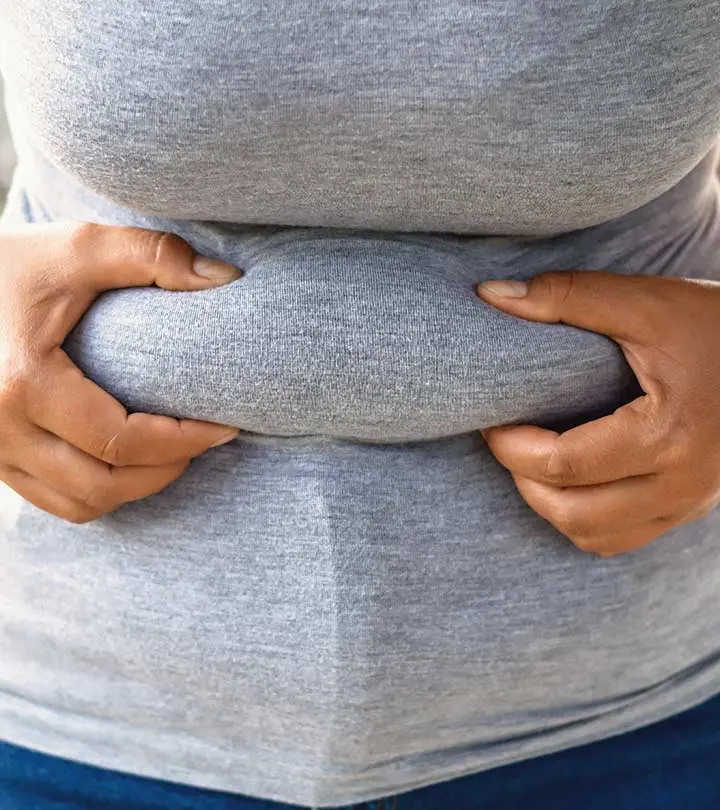
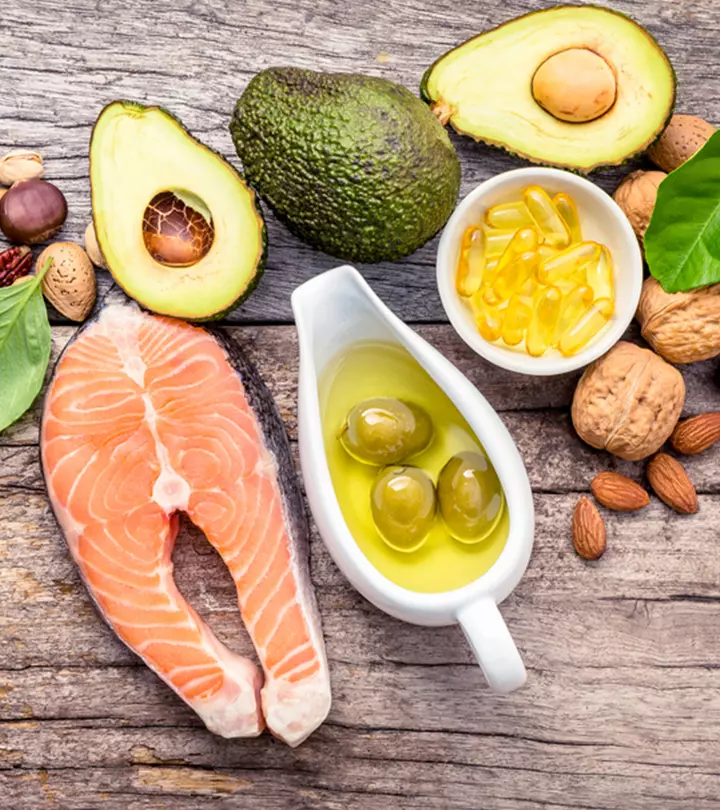
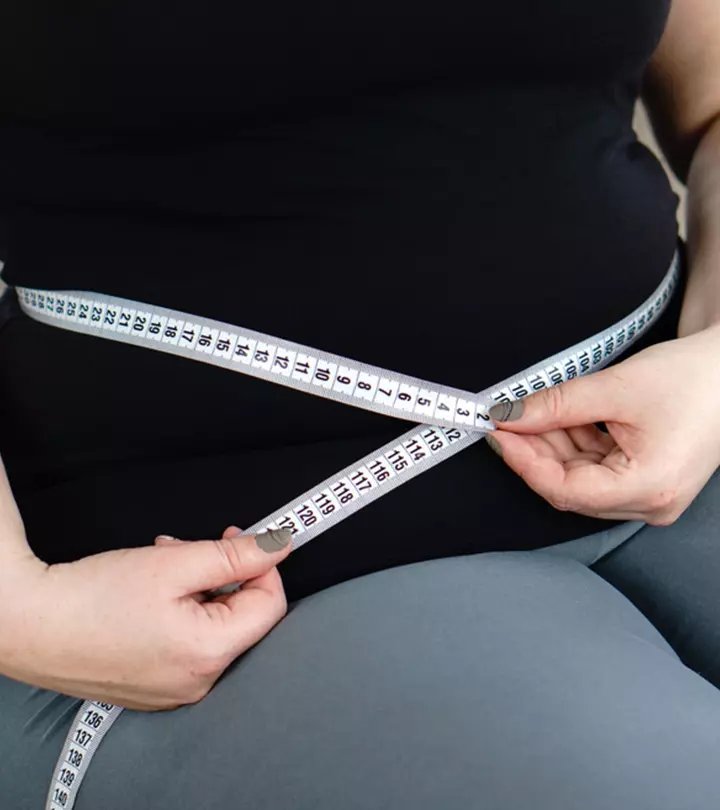




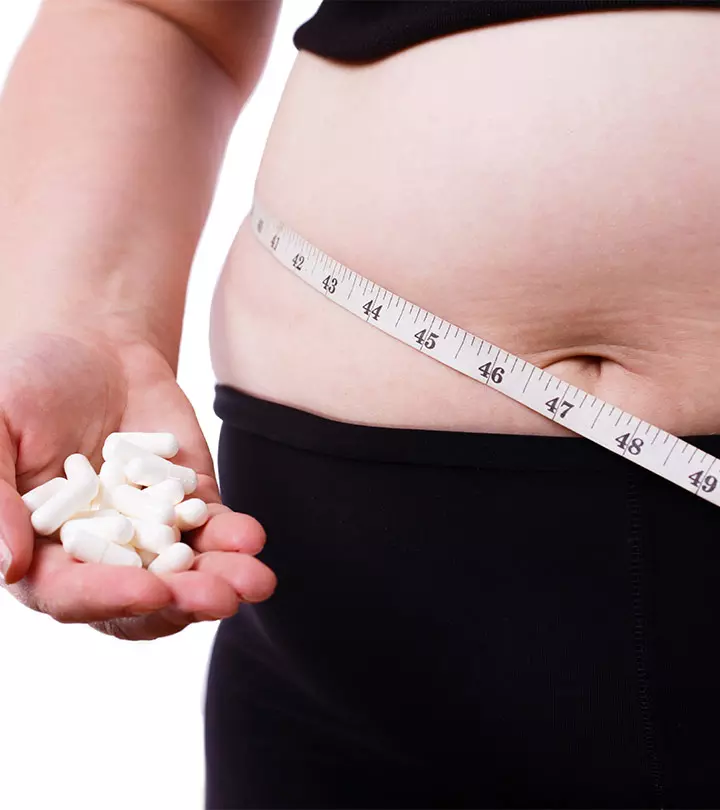

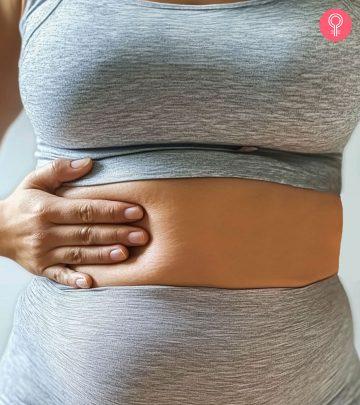
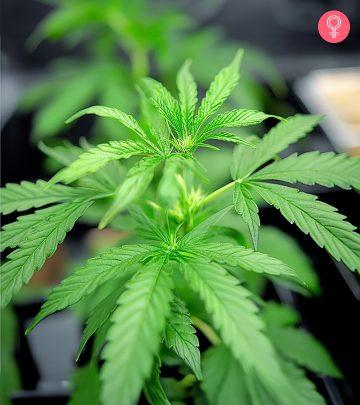



Community Experiences
Join the conversation and become a part of our empowering community! Share your stories, experiences, and insights to connect with other beauty, lifestyle, and health enthusiasts.